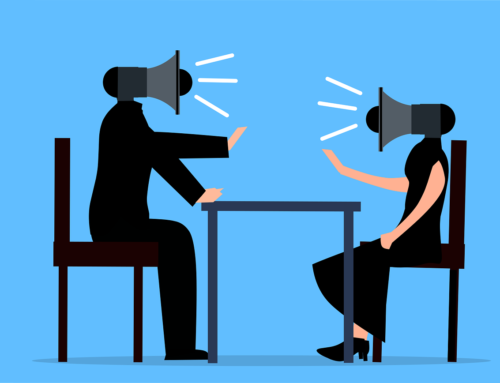Workplace mediation is the process by which two sides, it could be two employees, an employee and a manager, or entire teams, are guided through their conflicts towards a resolution. A mediator seeks to help resolve workplace conflicts within a team and restore harmony in the workplace. In this post, we’ll be taking a closer look at workplace mediation, what sort of situations mediation can be useful, and how to prevent conflicts in the first place.
What Is Workplace Mediation?
As mentioned above, workplace mediation is a process whereby one person acts as a go-between or neutral party, between two sides where there is a conflict. Although a mediator doesn’t come up with resolutions, they would facilitate discussion between conflicted parties, gather information, and help guide people towards a solution whereby everyone is satisfied (not always possible!).
The point is, that both sides get a chance to be heard fairly, have their viewpoints considered and hopefully reach an agreement they are satisfied with.
What Are The Benefits Of Workplace Mediation?
Workplace mediation can help with workplace retention. In a conflict situation, many people would simply feel they have to look for another job but by resolving conflicts in the workplace employees can reach a satisfactory outcome and continue in their jobs.
Resolving a conflict has the benefit of potentially saving businesses problems in the future too. By demonstrating your company has tried to settle matters in a fair way, mediation shows that your business tried to resolve any issues before it got to the point that someone felt like they had to leave, or that the other side was given an opportunity they weren’t.
Choosing mediation is not the same as a legal option. It’s less expensive and less stressful than taking legal action, which has benefits for a company, and employees.
Of course, the overall benefit of mediation is a harmonious workplace, where everyone feels as though if they have an issue, they will be listened to and facilitated in a non-judgmental way and will be given the opportunity to try and reach a resolution.

What Sort Of Situations Would A Mediator Help In The Workplace?
Workplace mediation should take place early on in a disagreement or grievance, the earlier both parties can be spoken to and heard, the better.
There are numerous situations where a business may feel like mediation is appropriate. The first may be a case of bullying. If a person feels they are being subjected to bullying or unfair treatment, a mediator can speak to both sides, get to the bottom of what is happening, and hopefully guide each party to an agreement.
Sometimes, mediation can be useful in teams where there are personality clashes. A team will never work well together if one person can’t hear what another is trying to tell them, or if a member of the team feels like they aren’t listened to. Mediation can lead to greater harmony and better understanding in teams where there are personality conflicts.
Let’s remember too that these sorts of issues don’t just occur amongst employees – a dispute may be between an employee and a manager. Mediation may also be part of a disciplinary process or an appeal against a disciplinary, where an employee feels actions being taken against them are unjust.
Why Use An External Mediator For Workplace Conflicts?
Some large companies may have an internal mediator, or their HR department may act as a mediator. This can be useful in lots of situations but sometimes, particularly in a disagreement between employees and the company, or an employee and a manager, the employee may feel as though HR aren’t able to act impartially.
It doesn’t matter how much an HR representative tells an employee they aren’t on anybody’s ‘side’, there is a tendency to view HR as ‘the establishment’, so it may be difficult to gain trust. If one party in a mediation process doesn’t trust you, it isn’t going to work.
In addition, an external mediator can be a fresh pair of eyes (or ears!) to a situation. HR may have seen similar reoccurring conflicts, or the same people not getting along. By bringing in an external mediator, they may be able to pick up on something that has been missed before or an external neutral party may be able to connect better with employees to resolve workplace conflicts.
If you need a mediator to help resolve a workplace conflict, please contact us and we will be happy to help.
Preventing Workplace Conflicts
The first and best option is to avoid the need for a mediator in the first place! There is a whole host of skills and training available for businesses that can help reduce the risk of conflicts.
At Rossendale Mediation, in addition to mediation services, we also offer training workshops covering many of the skills needed to avoid issues in the first place, and resolve workplace conflicts successfully if they do occur.
It has become apparent to us that communication and or leadership training empowers companies and employees to resolve their own disputes or better still, stop them escalating at all.
We offer a range of engaging workshops that cover topics such as:
- Leadership training
- Equality and diversity
- Managing conflict
- Performance management
- Appraisal training
- Managing sickness and absence
- Assertiveness
- Presentation skills
- Resilience Training
- Communication Skills
- Gravitas
You can read more about our workshops here, or contact us for further information and pricing.




[…] ensure teams can work together more effectively is to bring individuals together in mediation. A workplace mediator can help resolve conflicts and help with long-term staff […]